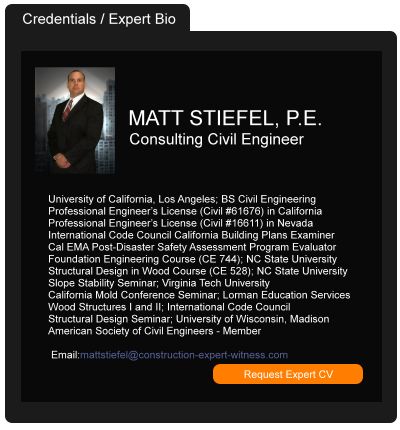Washington Builders Right To Repair Current Law Summary:
Current Law Summary: (SB 5536) The legislature passed a contractor protection bill that reduces contractors' exposure to lawsuits to six years from 12, and gives builders seven "affirmative defenses" to counter defect complaints from homeowners. Claimant must provide notice no later than 45 days before filing action; within 21 days of notice of claim, "construction professional" must serve response; claimant must accept or reject inspection proposal or settlement offer within 30 days; within 14 days following inspection, construction pro must serve written offer to remedy/compromise/settle; claimant can reject all offers; statutes of limitations are tolled until 60 days after period of time during which filing of action is barred under section 3 of the act. This law applies to single-family dwellings and condos.
Building Expert Contractors Licensing
Guidelines Seattle Washington
A license is required for plumbing, and electrical trades. Businesses must register with the Secretary of State.
Association Directory
Local # 4955
335 116th Ave SE
Bellevue, WA 98004
http://www.masterbuildersinfo.com
Seattle Washington Building Expert 10/ 10
Home Builders Association of Kitsap County
Local # 4944
5251 Auto Ctr Way
Bremerton, WA 98312
http://www.kitsaphba.com
Seattle Washington Building Expert 10/ 10
Home Builders Association of Spokane
Local # 4966
5813 E 4th Ave Ste 201
Spokane, WA 99212
http://www.shba.com
Seattle Washington Building Expert 10/ 10
Home Builders Association of North Central
Local # 4957
PO Box 2065
Wenatchee, WA 98801
http://www.nchba.cc
Seattle Washington Building Expert 10/ 10
MBuilders Association of Pierce County
Local # 4977
PO Box 1913 Suite 301
Tacoma, WA 98401
http://www.mbapierce.com
Seattle Washington Building Expert 10/ 10
North Peninsula Builders Association
Local # 4927
PO Box 748
Port Angeles, WA 98362
Seattle Washington Building Expert 10/ 10
Jefferson County Home Builders Association
Local # 4947
PO Box 1399
Port Hadlock, WA 98339
http://www.jeffcohomebuilders.com
Seattle Washington Building Expert 10/ 10
Building Expert News and Information
For Seattle Washington
AB 685 and COVID-19 Workplace Exposure: New California Notice and Reporting Requirements of COVID Exposure Starting January 1, 2021
Congress Considers Pandemic Risk Insurance Act to Address COVID-19 Business Interruptions Losses
Asbestos Confirmed After New York City Steam Pipe Blast
We've Surveyed Video Conferencing Models to See Who Fits the CCPA Bill: Here's What We Found
When Is Mandatory Arbitration Not Mandatory?
Before and After the Storm: Know Your Insurance Rights, Coverages and Obligations
Montana Federal Court Holds that an Interior Department’s Federal Advisory Committee Was Improperly Reestablished
Another Colorado Construction Defect Reform Bill Dies
Home Prices Up, Inventory Down
Montrose III: Vertical Exhaustion Applies in Upper Layers of Excess Coverage
A Court-Side Seat: An End-of-Year Environmental Update
Cal/OSHA ETS: Newest Version Effective Today
Insurance Law Alert: California Supreme Court Limits Advertising Injury Coverage for Disparagement
Wilke Fleury Attorneys Featured in “The Best Lawyers in America” & “Best Lawyers: Ones to Watch” 2025 Editions
Hurricane Warning: Florida and Southeastern US Companies – It is Time to Activate Your Hurricane Preparedness Plan and Review Key Insurance Deadlines
Why Being Climate ‘Positive’ Is the Buzzy New Goal of Green Building
Top Five General Tips for All Construction Contracts
Neighbors Fight to Halt Construction after Asbestos found on Property
Actual Cost Value Includes Depreciation of Repair Labor Costs
Massachusetts Appellate Court Confirms Construction Defects are Not Covered Under Commercial General Liability Policies
Re-Entering the Workplace: California's Guideline for Employers
Appraiser Declarations Inadmissible When Offered to Challenge the Merits of an Appraisal Award
Lending Plunges to 17-Year Low as Rates Curtail Borrowing
What I Love and Hate About Updating My Contracts From an Owners’ Perspective
Building Safety Month Just Around the Corner
Colorado House Bill 19-1170: Undefined Levels of Mold or Dampness Can Make a Leased Residential Premises Uninhabitable
Can I Be Required to Mediate, Arbitrate or Litigate a California Construction Dispute in Some Other State?
Settlement Reached in California Animal Shelter Construction Defect Case
Trump Signs $2-Trillion Stimulus Bill for COVID-19 Emergency
Virginia Decision Emphasizes Importance of Naming All Necessary Parties
California Appellate Court Confirms: Additional Insureds Are First-Class Citizens
Sanctions of $1.6 Million Plus Imposed on Contractor for Fabricating Evidence
Canada's Ex-Attorney General Set to Testify About SNC-Lavalin Scandal
Virginia Families Hope to Sue over Chinese Drywall
CISA Guidance 3.1: Not Much Change for Construction
Contractor’s Claim for Interest on Subcontractor’s Defective Work Claim Gains Mixed Results
Two Injured in Walkway Collapse of Detroit Apartment Complex
McCarthy Workers Test Fall-Protection Harnesses Designed to Better Fit Women
Newmeyer Dillion Attorneys Named to 2020 Southern California Rising Stars List
Time To “Construct” New Social Media Policies
Why Is It So Hard to Kill This Freeway?
London Is Falling Down and It's Because of Climate Change
Ambiguity Kills in Construction Contracting
Reminder: Know Your Contractor Licensing Rules
Ohio Supreme Court Case to Decide Whether or Not to Expand Insurance Coverage Under GC’s CGL Insurance Policies
Providence Partner Monica R. Nelson Helps Union Carbide Secure Defense Verdict in 1st Rhode Island Asbestos Trial in Nearly 40 Years
California Court of Appeal Clarifies Intent of Faulty Workmanship Exclusions
Poor Pleading Leads to Loss of Claim for Trespass Due to Relation-Back Doctrine, Statute of Limitations
Negligence Claim Not Barred by Gist of the Action Doctrine
Update Regarding McMillin Albany LLC v. Super Ct.


































































